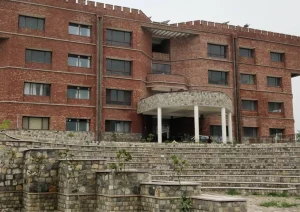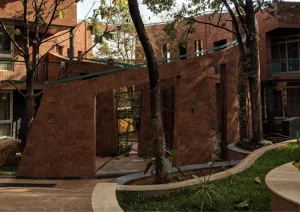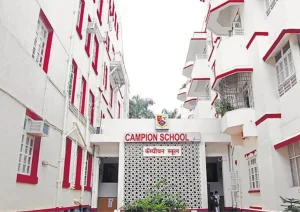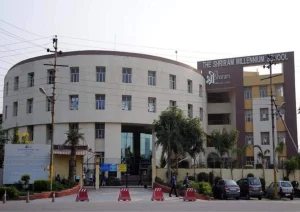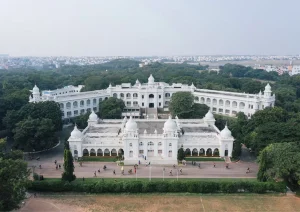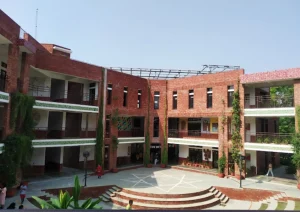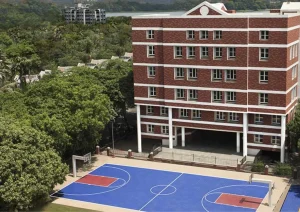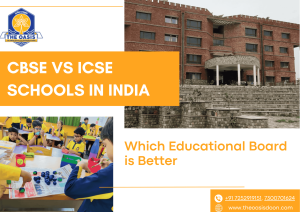
Indian education has undergone enormous transformations over the decades. Of the many school boards, CBSE and ICSE schools in India are the most popular in demand. While CBSE is predominant throughout the country, the ICSE (Indian Certificate of Secondary Education) is distinguished for its depth, well-balanced curriculum, and emphasis on language and analytical skills. Selecting the appropriate board is crucial as it determines the academic foundation, learning experience, and future prospects of the students.
An Understanding of the Core Differences
Board Overview
ICSE (Indian Certificate of Secondary Education)
Governed by the Council for the Indian School Certificate Examinations (CISCE), ICSE schools in India have a syllabus with a strong emphasis on language, arts, and science with rich subject content.
CBSE (Central Board of Secondary Education)
CBSE is a Union Government-run national-level board. It gives importance to core subjects such as Mathematics and Science, which is why it suits competitive exam preparation such as JEE and NEET.
Structure of Curriculum and Emphasis
Depth in Academics
ICSE schools in India provide an in-depth and comprehensive curriculum. The subjects are taught with equal stress on theoretical concepts and practical applications. English grammar and literature are especially stringent.
CBSE, however, has a more concise syllabus. It is student-oriented, with increased objective-type questions and reduced emphasis on English profundity.
Subject Options
Indian ICSE schools offer an extensive array of subject options ranging from environmental science, home science, computer applications, and commercial studies from high school onwards.
CBSE schools have fewer electives compared to but are suitably aligned with national entrance examinations, so they are a practical option for students aiming for IITs or medical school.
Assessment and Evaluation

Examination
Examinations in ICSE schools in India are descriptive in nature, which stimulates students to write answers in full sentences, which enhances communication and analytical ability.
CBSE examinations place emphasis on multiple-choice questions and step-wise marking, which supports rapid learning and performance-based feedback.
Internal Assessments
ICSE lays great emphasis on project work and internal assessments that form part of the overall score.
CBSE has minimal internal assessments, with more emphasis on the year-end examinations, though NEP 2020 reforms are slowly altering this pattern.
Language and Medium of Instruction

English Proficiency
One of the main strengths of ICSE schools in India is their intense focus on English. The board syllabus boosts grammar, vocabulary, and reading comprehension, which helps students intending to study abroad or read liberal arts.
CBSE schools are just not as intensive in this field but still provide good language skills, particularly in science and math-based schooling.
Competitive Exams and Higher Education
Exam Preparation
Students from ICSE board can require extra tuition for entrance exams as the curriculum is wider and not narrowed down to competitive exams.
CBSE aligns its curriculum with national competitive exams to a large extent so its students get a structural edge.
University Admissions
Both ICSE and CBSE board students are admitted to Indian and overseas universities. However, international universities prefer ICSE students due to their fluency in language and academic adaptability.
Flexibility and International Acceptance

International Acceptance
ICSE schools of India are accepted by most international education systems and are, at times, recognized as equal to international boards such as IGCSE.
CBSE is also present globally, particularly in the Gulf region, and is greatly accepted by Indian universities.
Flexibility in Curriculum
ICSE students have greater subject choice freedom and have more creative project work and assignments. CBSE has lesser flexibility but a more streamlined approach, especially for technical subjects.
Teaching Methodology and Skill Development
Approach to Learning
The ICSE schools in India foster critical thinking, essay writing, and thorough concept understanding. The learning is research-oriented and practical.
CBSE schools encourage conceptual clarity and effectiveness, frequently gearing students for good scores in standardized patterns.
Balance of Co-Curricular Activities
ICSE schools generally accord equal importance to academics and extracurricular activities, while CBSE schools do more towards academics, even though many now include co-curricular programs as a result of the modern education reforms.
Cost and Accessibility
Fee Structure
ICSE schools in India tend to be private schools with greater fee structures on account of sophisticated infrastructure and minimum student-teacher ratios.
CBSE schools comprise numerous government-related institutions, thus being more affordable for the masses.
Which One Should You Choose?
If your child is language, arts, or humanities inclined or wants to study abroad, then ICSE schools in India provide a holistic foundation. If your child wants Indian competitive exams and sound foundations in science and math, then CBSE might be a more tactical option.
Ultimately, the choice needs to fit your child’s style of learning, professional aspirations, and interests.
Conclusion
Both CBSE and ICSE boards are excellent in their own particular ways. What is important is how the student makes use of the facilities made available by the board and the school. ICSE schools in India encourage holistic education, whereas CBSE emphasizes academic excellence and examination preparedness. With the changing face of education in India, both systems are conforming to international standards. The most important thing is to select what suits your child best—not only in terms of academics but also emotionally and personally.
Frequently Asked Questions
1. What is the primary distinction between ICSE and CBSE schools in India?
ICSE schools in India provide a more comprehensive, language-based course with detailed subject matter. whereas CBSE places greater emphasis on science, mathematics, and competitive exam preparation with a compact syllabus.
2. Which board is ideal for students who want to study abroad?
Indian ICSE schools are preferably sought out for international admissions because of their heavy focus on English language proficiency, analytical ability, and academic rigor.
3. Are CBSE schools cheaper than ICSE schools?
Yes, CBSE schools tend to encompass government-run institutions and are generally cheaper, while ICSE schools in India tend to be private and more expensive.
4. Which board provides more subject and project flexibility?
ICSE has a broader course of studies and focuses on project work and internal assessment, which provides students with greater scholastic freedom and exposure to reality.




